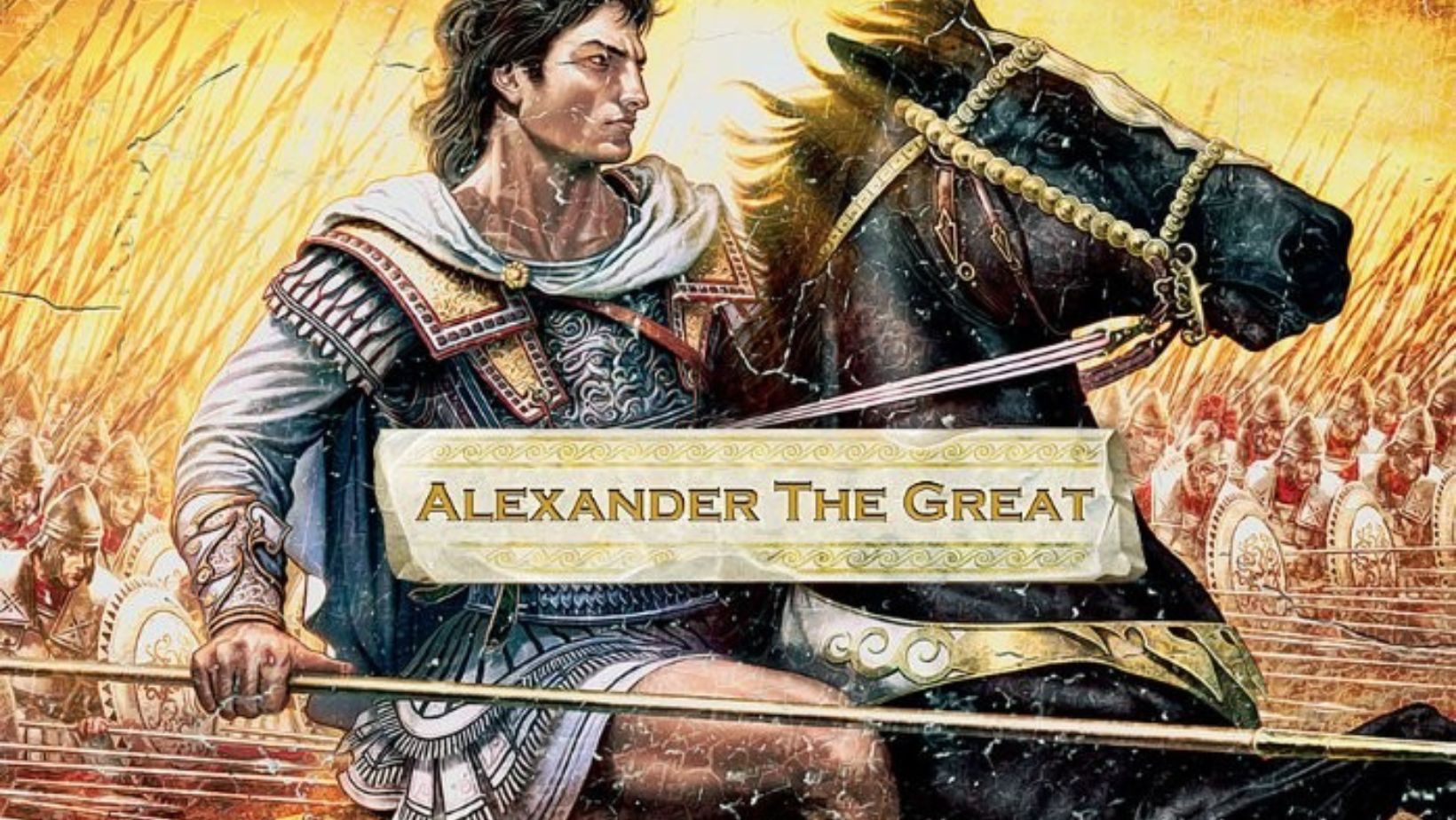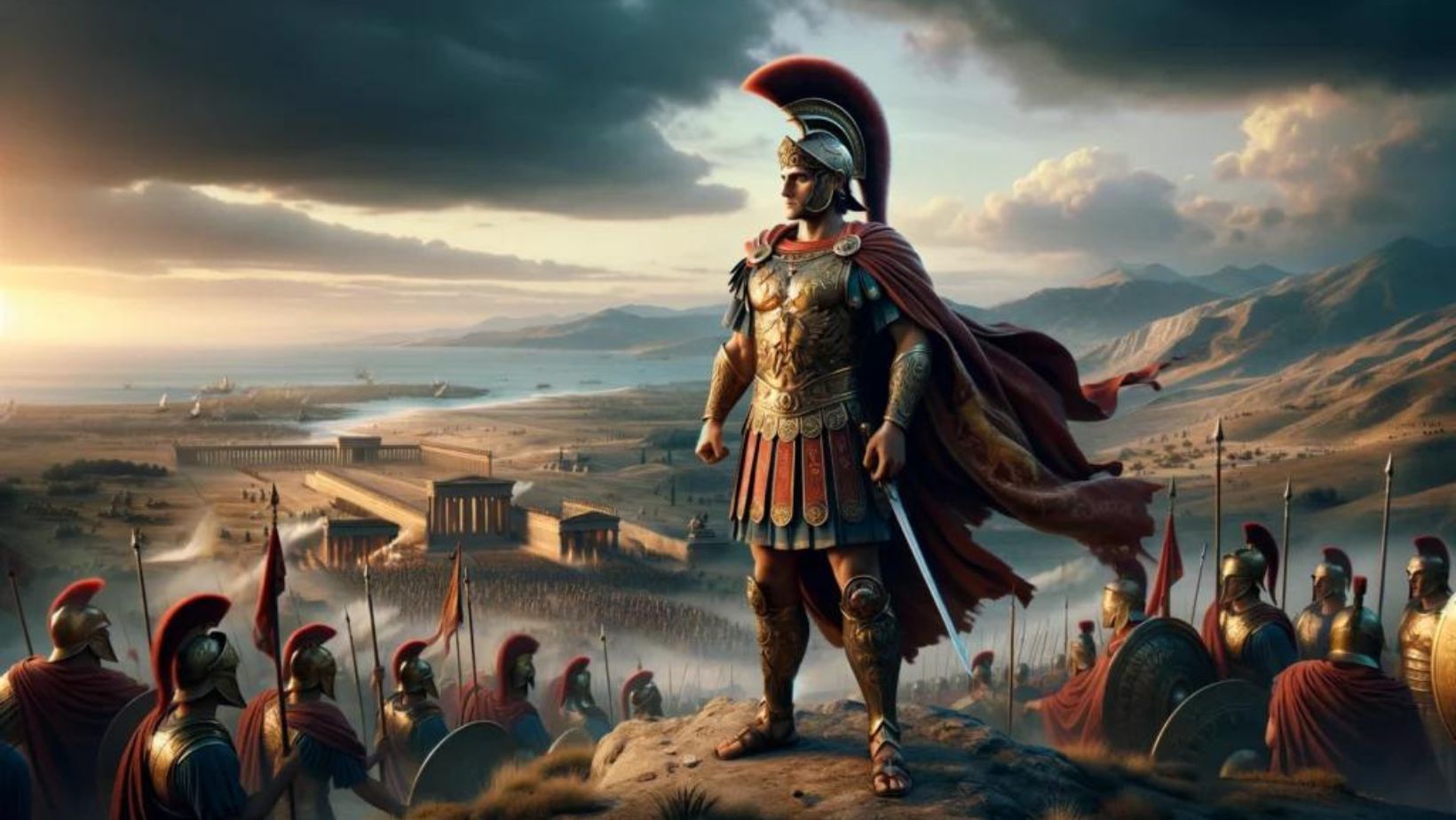Ever wondered what made Alexander the Great’s Governance not just great but legendary? His reach wasn’t confined to his military victories that spanned from Greece to India; his innovative leadership style set him apart. From adopting Persian customs to marrying local women, he did more than conquer; he truly ruled. At a young age, under Aristotle’s mentorship, he was prepped for greatness – yet it was his innovative strategies in both battle and peace that defined his rule.
Table of Contents:
- Alexander the Great’s Early Life and Rise to Power
- Conquests and Expansion of Alexander’s Empire
- Alexander’s Leadership and Governance
- Cultural Impact and Legacy of Alexander the Great
- Controversies and Criticisms of Alexander’s Rule
- Conclusion
Alexander the Great’s Early Life and Rise to Power: Alexander the Great’s Governance

Alexander the Great was born in 356 BC to King Philip II of Macedon. From a young age, Alexander was groomed for greatness.
He was tutored by the renowned philosopher Aristotle, who instilled in him a love for learning and culture. Alexander’s education prepared him well for his future role as a leader and conqueror.
In 336 BC, King Philip II was assassinated, and 20-year-old Alexander ascended to the throne. Despite his youth, Alexander quickly proved himself a capable ruler.
He secured the support of the Macedonian army and crushed any opposition to his rule. Alexander then set his sights on expanding his kingdom beyond the borders of Macedon.
Early Military Campaigns: Alexander the Great’s Governance
Alexander’s first major military campaign was against the city-states of Greece. He swiftly defeated the Thebans and Athenians, forcing them to acknowledge Macedonian supremacy.
Next, Alexander turned his attention to the Persian Empire, which significantly threatened Macedonian power.
Conquests and Expansion of Alexander’s Empire: Alexander the Great’s Governance
Alexander’s military campaigns were marked by stunning victories and strategic brilliance. His conquests expanded the Macedonian Empire to unprecedented heights.
In 333 BC, Alexander faced off against the Persian king Darius III at the Battle of Issus. Despite being outnumbered, Alexander’s tactical genius led to a decisive victory.
In the heat of battle, Darius made a run for it, leaving not just his loved ones but also his valuables in the dust. This victory gave Alexander control over the wealthy provinces of the Persian Empire.
Conquest of Egypt
After the Battle of Issus, Alexander marched his army into Egypt, which fell to him without resistance. The Egyptians welcomed Alexander as a liberator from Persian rule.
In Egypt, Alexander founded the city of Alexandria, which would become a major center of learning and culture in the ancient world. He also visited the famous oracle of Amun at the Siwa Oasis, where he was proclaimed the son of Zeus.
Campaign in Persia: Alexander the Great’s Governance
With Egypt secured, Alexander set his sights on the heart of the Persian Empire. In 331 BC, he defeated Darius again at the Battle of Gaugamela.
This victory effectively ended Persian resistance and made Alexander the master of the vast Persian Empire. He stormed into the heart of Persepolis, seizing the Persian capital, and stepped up to call himself “King of Kings.”
Invasion of India
Not content with his already vast empire, Alexander sought to push further east into India. In 326 BC, he led his army across the Indus River and into the Punjab region.
There, Alexander faced fierce resistance from the Indian king Porus. Although Alexander emerged victorious, his army was exhausted and homesick. They refused to march further, forcing Alexander to turn back.
Alexander’s Leadership and Governance: Alexander the Great’s Governance
Alexander was more than just a brilliant military strategist; he was also a visionary leader who sought to unite his vast empire under a common culture and system of governance.
A big part of why Alexander the Great rocked the ancient battlefield was his knack for devising fresh strategies and leading his troops like a boss. He was always out front, leading his troops into battle with bravery and resolve that motivated everyone around him to push harder.
One famous story shows how Alexander tamed the wild horse Bucephalus, deemed untameable. Alexander’s ability to tame Bucephalus was a sign of his greatness and his destiny to conquer the world.
Administration of the Empire
As his empire grew, Alexander faced the challenge of governing a vast and diverse territory. He adopted a policy of cultural fusion, encouraging intermarriage between Macedonians and Persians and incorporating Persian customs and dress into his court.
Alexander also founded new cities throughout his empire, many named after him. These bustling cities were the heart of Greek culture and hubs for trade, playing a huge role in weaving Hellenistic threads throughout ancient civilizations.
Unlike many conquerors, Alexander was known for his tolerance and respect for the customs and religions of the peoples he conquered. He often allowed local rulers to maintain their positions of power as long as they acknowledged his authority.
In Egypt, Alexander was hailed as a liberator and worshipped as a god. By adopting Persian traditions and marrying Persian women, he cemented his place in the hearts of his new people.
Adoption of Persian Customs: Alexander the Great’s Governance
As he spent more time in Persia, Alexander began to adopt Persian customs and dress, much to the dismay of some of his Macedonian companions. He took on the Persian title of “King of Kings” and even required his subjects to perform proskynesis, a Persian act of obeisance.
Some historians see this as evidence of Alexander’s growing megalomania, while others argue that it was a shrewd political move designed to unite his empire under a common culture.
Cultural Impact and Legacy of Alexander the Great: Alexander the Great’s Governance

Alexander’s conquests had a profound impact on the ancient world, ushering in a new era known as the Hellenistic period. As Greek culture and language wove their way through the empire, they left a lasting mark on everything from art and architecture to philosophy, shaping these realms for many years to come.
One of Alexander’s most enduring legacies was the spread of Greek culture throughout his vast empire. Back in the day, Greek was the go-to language for everything important – whether you were striking a deal, smoothing things over between countries, or diving into some serious academic work.
Greek art and architecture also flourished during the Hellenistic period, with new styles and techniques emerging as Greek artists interacted with the cultures of the Near East and beyond.
Influence on Art and Architecture: Alexander the Great’s Governance
The Hellenistic period saw the rise of new artistic styles, such as the dramatic and emotional Pergamene school of sculpture. Hellenistic architecture was characterized by its grandeur and opulence, with massive temples, palaces, and public buildings adorned with elaborate decorations.
The influence of Hellenistic art and architecture can still be seen today in the ruins of ancient cities like Pergamon, Ephesus, and Alexandria.
Lasting Historical Significance
Alexander’s legacy has endured for over two millennia, inspiring countless military leaders, politicians, and artists. His conquests reshaped the ancient world and laid the foundations for the rise of powerful empires like Rome.
Today, Alexander is remembered as one of the greatest military commanders in history, a visionary leader who sought to unite the world under a common culture and system of governance. His legacy continues to fascinate and inspire people around the globe.
Controversies and Criticisms of Alexander’s Rule: Alexander the Great’s Governance
Despite his many achievements, Alexander was not without his flaws and controversies. Many historians aren’t too thrilled about how he treated the people he conquered, pointing out his oversized ego and some of his decisions that make you go, “Hmm.”
While Alexander was known for his tolerance and respect for local customs, he could also be ruthless in his treatment of those who resisted his rule. He brutally suppressed rebellions in cities like Thebes and Tyre, massacring thousands of civilians and selling survivors into slavery.
Some historians argue that Alexander’s actions were no worse than those of other ancient conquerors, while others see them as evidence of his cruelty and tyranny.
Megalomaniacal Tendencies
As Alexander’s fame and power shot through the roof, he started showing a big head and getting suspicious of everyone around him. He became increasingly suspicious of his own men, executing several of his most loyal generals on flimsy charges of treason.
Alexander also demanded divine honors from his subjects, proclaiming himself the son of Zeus and requiring his companions to perform proskynesis before him. Some historians see this as evidence of Alexander’s growing detachment from reality.
Questionable Actions and Decisions: Alexander the Great’s Governance
Some historians have criticized Alexander’s decision to push further into India despite his men’s exhaustion and homesickness as a reckless and unnecessary gamble.
When he started wearing Persian outfits and embracing their ways, many of his Macedonian buddies felt like he was turning his back on everything they held dear.
Ultimately, Alexander’s untimely death at the age of 32 left his empire in chaos, with his generals fighting bloody wars of succession for control of his vast territories. Some experts in history believe that Alexander the Great’s biggest slip-up was not making it clear who should take over after him.
Key Takeaway: Alexander the Great’s Governance
Alexander the Great, tutored by Aristotle and fueled by a thirst for conquest, expanded his empire with strategic brilliance and military genius. He embraced cultural fusion, founding cities that spread Greek culture across the ancient world. Yet, his rule was marked by controversies like harsh treatment of rebels and signs of megalomania.
Conclusion: Alexander the Great’s Governance
When we dive into Alexander the Great’s approach to leading, it’s clear there’s more on offer than just tales of ancient battles and political chess moves. His blend of cultural assimilation with strategic marriages and respect for conquered peoples’ traditions offers insights into effective leadership that transcends time. As someone who saw beyond mere conquest to build something enduring—a fusion of cultures known as the Hellenistic period—Alexander showcases how vision combined with adaptability can forge legacies that last millennia.
So, next time you think about success in terms of numbers or territories gained, remember Alexander. He built one of history’s largest empires not by sword alone but through wisdom in governance—an art as crucial now as it ever was.

